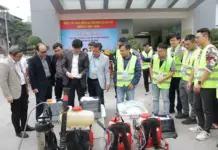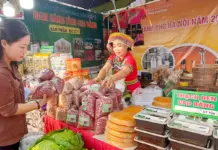Welcome to Vietnam’s homestays, where warm hospitality, tasty food and lovely locations are the norm. It doesn’t just sound interesting but also unfolds some of the unique cultural practices that you can only witness in a household.
Vietnam homestay is well regulated for tourists, and anyone who wishes to share the same roof with a native family. To bring the point home, here are five reasons you must try homestay in Vietnam for a memorable experience.
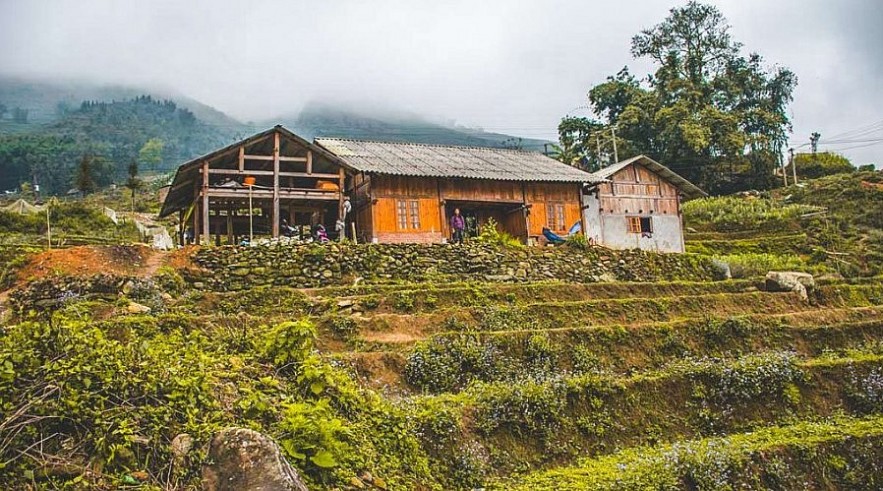 |
| Photo: localvietnam.com. |
Local hospitality
It’s safe to say the real highlight of a Vietnamese homestay is the people you’ll meet. As vietnam.travel reported, Not only are Vietnamese cheerful and hardworking, but they also treat their guests with genuine care and attention. Your homestay host wants nothing more than for you to relax, explore, eat well and enjoy yourself. Don’t be surprised if you’re offered a free footbath, an array of fresh fruits, or motorbike rides around town — it’s our way of showing hospitality.
During your time at the homestay, you’ll have the chance to see local life up close. Talk to the host family and find out how things are done the Vietnamese way. You may strike up a conversation with a teenager, make friends with the grandmother who cooks your breakfast or enjoy your host’s hidden talents, such as flute-playing or folk singing. These authentic moments make travel worthwhile.
If you are fond of exploring culture and traditions then homestay is the perfect offer for you, as agatetravel.com reported. Vietnamese communities are optimistic people, interacting with them will help them acquire an in-depth understanding of their daily lives, cultures, and traditions. It’s also the best option if you want to experience a closeness of a family in a foreign country.
Tourists often worry about the language barrier. Well, the answer to that thought is that Vietnamese hosts often speak Basic English. The houses sorted for homestay are selected based on their understanding of diversity and language. Hosts are often given basic English training to make it easier for them.
Unique accommodation
Many Vietnam homestays are beautifully furnished, as wander-lush.org reported. Ethnic minority homestays are located in traditional dwellings, such as Muong stilted houses or Hmong earthen houses. These structures are a work of art—the chance to spend the night in one is an absolute privilege.
Vietnam homestays usually offer a mix of private rooms and mixed dormitories that might be screened off with curtains. If you’re lucky, you might get your own private bungalow. Lights, power sockets, fresh linens and towels are all standard. Unless you’re somewhere very remote, WIFI is usually available in common areas at the very least. Washrooms are usually shared and can be rustic, but standards of cleanliness are very high.
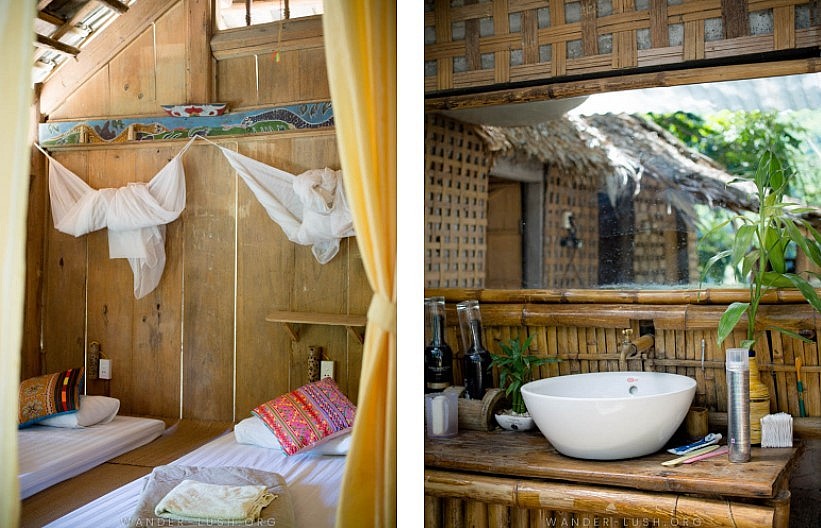 |
| Photo: wander-lush.org. |
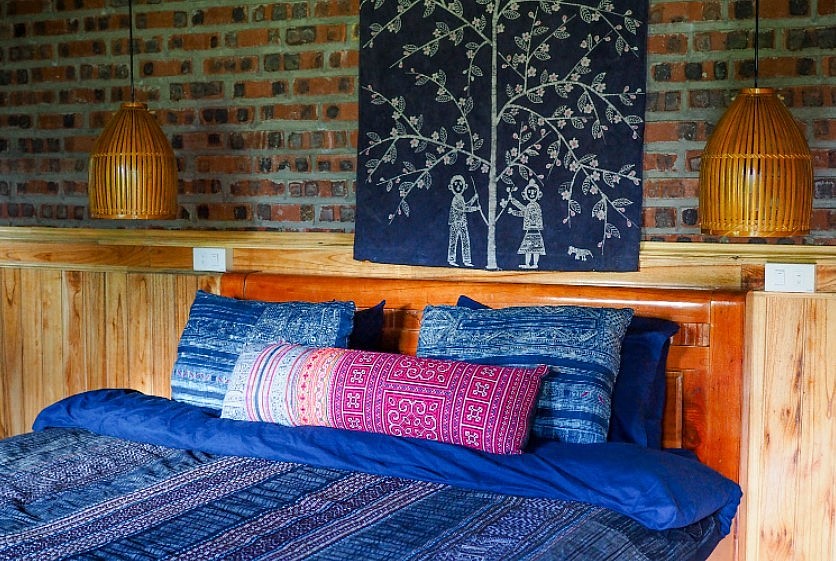 |
| Photo: wander-lush.org. |
While Vietnam has its share of five-star hotels, nothing beats the one-of-a-kind experience you get in a real home. Each homestay is different, and you may be surprised by the many choices here. In the surreal watery landscapes of Ninh Bình, you can stay in a bamboo hut in the shadow of ancient limestone karsts. In mountainous areas such as Sapa and Mai Châu you can sleep in rustic wooden lodges and longhouses. In the Mekong Delta, simple brick homestays are surrounded by canals, fronds and fruit farms. You’ll also find homestays in Vietnam’s cities — a great opportunity to explore sidewalk culture and urban Vietnam.
Best home cooking and freshest food
“Farm-to-plate” dinners in the West are often the preserve of gastropubs. But whether you’re in the countryside making friends with your dinner before its demise (at least you know where it came from) or staying in a city where sprawling markets with fresh produce line every street, food doesn’t come much fresher than at a homestay, as insideasiatours.com reported.
Get hands-on (and feet in) at rice paddies or join local fisherman to try your hand at throwing nets for your very own catch of the day; you may look at food a little differently when you return home.
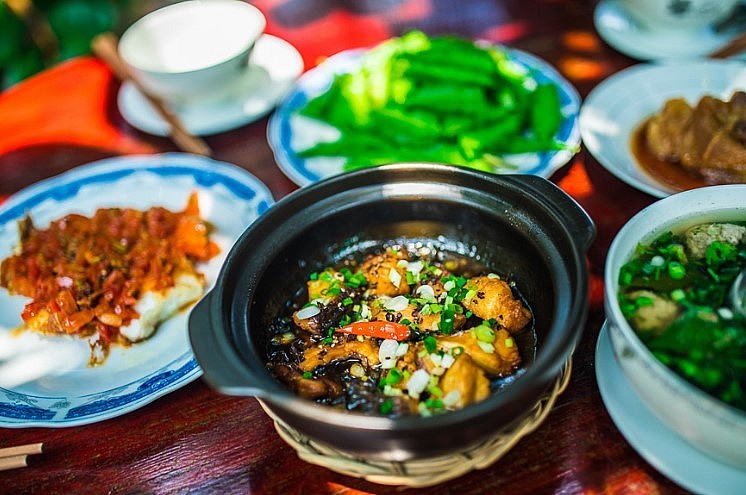 |
| Photo: vietnam.travel |
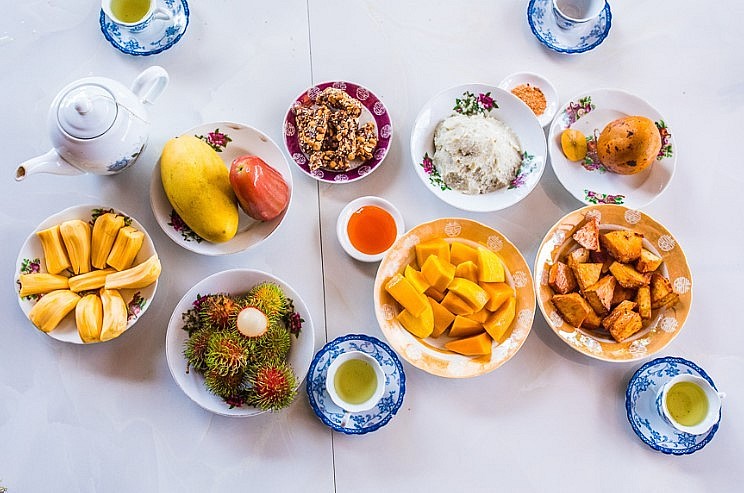 |
| Photo: vietnam.travel |
If meeting new people is the best part of the homestay experience, the food is a close second. Vietnamese homestays are famous for serving up fabulous, fresh and delicious cooking three times a day (or more!) You can expect your host to work with the local produce to create unique regional dishes. Fruit is another favourite item Vietnamese love to eat and share with travelers. A plate of fruit with green tea is a common snack all around the country.
In most homestays, you aren’t given a menu: you simply eat what’s prepared. But don’t worry — it’s always good (of course you can tell your host if you have dietary preferences.) Breakfast might be a bowl of rice noodles in savoury broth, or a crunch Bánh Mì with eggs and hot coffee. Lunch might involve simple wraps, with shrimp, tofu, herbs, lettuce and cucumber rolled in rice paper and dipped in fish sauce. Dinner is usually a large meal with a variety of vegetables, seafood and meat dishes, always served family-style with fluffy steamed rice. Enjoy!
Give back to the community
When you stay at a homestay, you’re putting money directly into the hands of a local family rather than funding a chain hotel. And it’s not just the family whose house you’re sleeping in. There are many other people behind the scenes who make a homestay function smoothly, including cooks, farmers, fishermen, guides and transport providers. This is especially important in Vietnam, where ethnic minority communities are often marginalized and excluded from the mainstream tourism industry.
According to thelazyholiday.com, when you book direct with the local ladies, 100% of the proceeds go directly to your host and her family. This was the deciding factor to which why we decided not to book a tour through an agency. Although we do not know the actual figure, tour agencies are the third parties earning commissions out of every deal. That would mean the ladies who are doing the bulk of the job be left with only a tiny portion of what came out of your pocket.
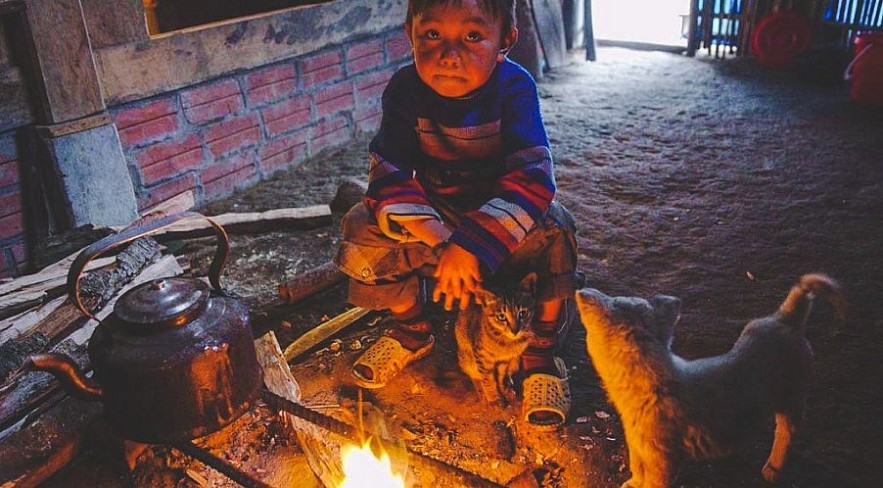 |
| Photo: localvietnam.com |
It Will Take You off the Beaten Tracks
Many of us spend our lives behind a screen, and while Wi-Fi in Southeast Asia is unlikely to meet speeds you’re used to at home, you will be able to upload the odd photograph to social media while staying in cities. As insideasiatours.com reported, homestays in rural areas offer a break from the trappings of modern life; feel your shoulders relax as you set aside your phone and tourist tick-list to join the gentle rhythm of life in the village.
If your goal is to discover the off the beaten tracks, then homestay offers a perfect set up. Most of the accommodations happen in the remote area that a tourist often wouldn’t plan on exploring. This gives an open platform for tourists to enjoy and experience a slice of life in a peaceful environment. You would love to be surrounded by greenery, or sleep under the open star-studded sky. It’s always better to get away from the hustle-bustle of the city, and business area anyway. It helps you explore the hidden beauty of the place, as agatetravel.com reported.
A village can be a small dot against staggering mountains or brilliant green rice paddies. A night or two at a homestay gives you the opportunity to spend quality time in these beautiful surroundings beyond the constraints of a day trip. Your homestay hosts or a local guide may even show you to some hidden highlights.
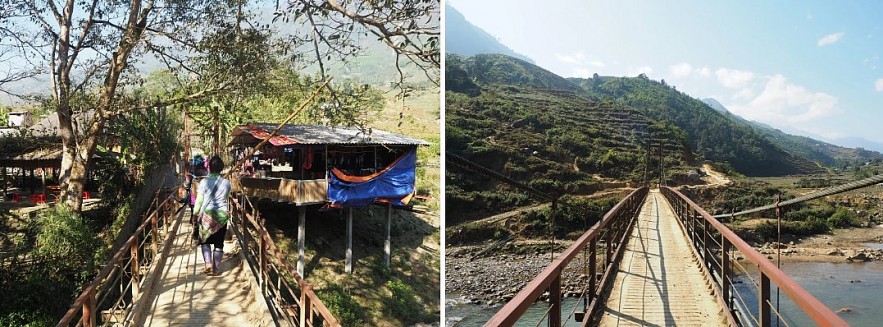 |
| Photo: thelazyholiday.com. |
A homestay experience might feel like an adventurous leap, but once you’ve settled in to your new room, eaten a fresh meal and had a sip or two of local rice wine, it might be a struggle to leave!
Many destination homestays are located right on the doorstep of some of Vietnam’s most beautiful landscapes. Trekking, waterfalls, caving and other outdoor activities are usually part and parcel of the homestay experience. Most homestays can organise a local guide or at the very least give you tips about where you should roam to. Homestays in smaller villages are ideal starting points for trekking in Sapa.
|
FAQ about staying in a homestay What about the language barrier? Especially in rural areas, as localvietnam.com reported, hosts speak limited to no English. Sometimes there is a younger person of the family that can speak a bit or when it is included in a guided trekking, you guide can translate for you. Otherwise you have to be creative, using your hands to talk or alternatively you can try to use translation apps. What do I bring? If you stay in a rural area, mosquito repellent is definitely recommended. If you stay in the mountains also bring something warm to sleep in, because there are no heaters. Do I need to bring a gift for the host? It is not the standard or common that tourist bring gifs for their host, but it is appreciated. You could bring fruit for example. Snacks for the children are not recommended, because they don’t always have acces to good dental care. What is included? It depends from place to place, but usually breakfast and you can add lunch and/or dinner. Coffee and tea are usually free. Bed linens, mosquito nets, bath towels, soap and shampoo. |
The beauty of Xo dang’s epics
The epics of the Xo Dang ethnic group’s T’dra branch, also known as ho mu’uan, were first discovered in the early 2000s by Vo Quang Trong, Director of Vietnam Museum of Ethnology. Dr. Trong and his colleagues have collected 106 versions of epic narratives in Kon Tum province’s Dac Ha and Dac To districts.
Vung Tau aims to become a clean, green tourist destination
Vung Tau, a famous coastal tourist destination in Vietnam, has stepped up efforts to improve service quality and become a clean city.






